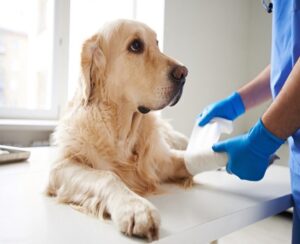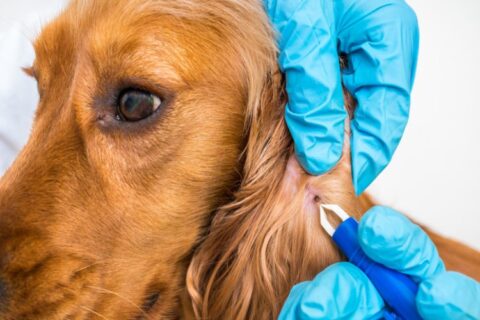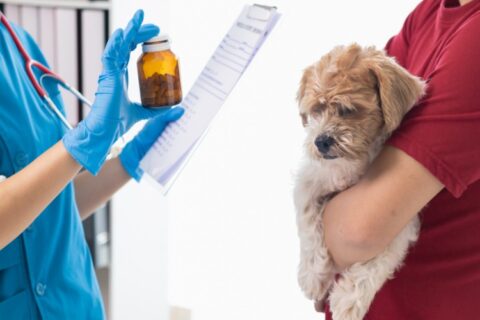What to Know about ACL Tears in Dogs

If you watch or participate in sports, you’ve probably heard of ACL injuries. In a human, the thin connective tissue in the middle of our knee is called the ACL or anterior cruciate ligament, and it’s often damaged suddenly during sports that involve changes in direction, stops, jumping, and landing. In a dog, that tissue is called the cranial cruciate ligament, or CCL, and it’s typically injured more gradually. It’s often a partial tear that gets worse little by little, and then becomes a full tear because of continued physical activity, like chasing squirrels.
Sometimes, the weakness that develops in the CCL is not due to activity at all. Rather, the ligament becomes weaker over time, often due to genetics. Normal activity can then cause the CCL to tear, without an injury or any particular force. This genetic component explains why certain breeds are more likely than others to sustain a CCL injury. A dog with a torn CCL will begin showing symptoms:
- Limping or signs of lameness can come on without warning. If the dog then begins to favor his other leg, undue pressure will be placed on the uninjured knee. That’s why in 60 percent of cases, a CCL tear leads to an injury in the other knee.
- Your dog may sit abnormally. The leg may be sticking out to the side if it hurts for your dog to bend the knee.
- The knee may thicken and swell. CCL injuries can cause inflammation and swelling, and scar tissue can develop, making the injured side look bigger.
- You might hear a clicking when your dog walks. When the CCL injury causes the knee to move abnormally, it puts more stress on the other parts of the joint. The meniscus, a pad of cartilage in the knee that acts as a shock absorber, may become torn or damaged. If it does, you may hear an audible click when you take your dog for a walk.
A CCL injury will not heal on its own, so if your dog has torn his CCL, he’ll need to rest. His leg will need to be immobilized, and he may need surgery. Your vet can evaluate the injury to determine the best treatment options.
If your dog has torn his CCL, you can trust Reed Animal Hospital to treat him as if he were our own. Our goal is to help you and your pet enjoy a healthy, fulfilling life together, and in pursuit of that goal, our extraordinary team offers a wide range of services. We have veterinarians, technicians, assistants, and receptionists, all prepared to help you and your pet. In most cases, surgical repair can be accomplished at the hospital. We have surgeons that can perform the procedure in one of our surgical suites and can also regulate any anesthesia needed on location at Reed Animal Hospital. This simplifies the process for the owner and is much more comfortable for your pet.
For more information or to make an appointment, call us in Campbell at 408. 369. 1788, or in Saratoga at 408.647.2906, or contact us through our website.


